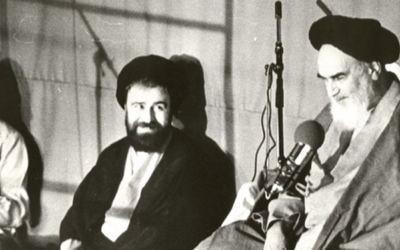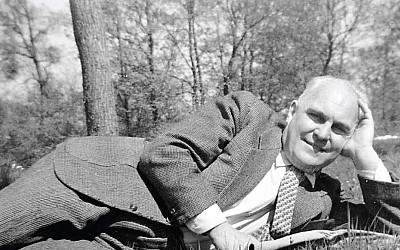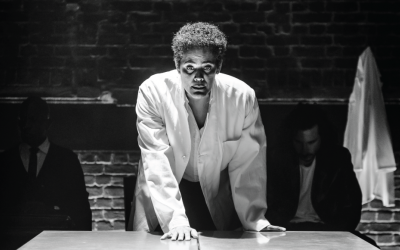Opinion
Latest | Popular
-
Jeff Mason argues that the concept of death has no subjective meaning.
-
Michael Ezra argues that Karl Marx's anti-Semitism is clear and unambiguous
-
TPM's brief introduction to the ideas and work of Mary Wollstonecraft.
-
In an article originally published in June 2012, Jeff Mason reflects on his cancer diagnosis and impending death.
-
Jeremy Stangroom on Michel Foucault's political naiveté.
-
Richard J. Bernstein argues that she is worth reading, and rereading, in these dark times
-
Rupert Read on Richard Rorty's warning to the future.
-
Massimo Pigliucci argues against oversimplification in the way we view Islam and the way we view criticism of Islam.
-
Jeremy Stangroom on a tricky issue of consent.
-
Rupert Read argues that the choice is clear in this election.
-
Jeremy Stangroom asks whether it is possible to construct a convincing moral case against a (particular) decision to commit suicide.
-
Massimo Pigliucci on the metaphysical implications of an approach to physics that suggests time and space are not entities, but rather ways to order events.
-
Kerrie Grain argues that the time for Héloïse to be recognised as love's true philosopher is long overdue.
-
Jennifer Saul on the psychological biases adversely affecting philosophy – and what we can do about it.
-
Russell Blackford looks at how the human cloning debate has played out over the last 20 years.
-
Peter Boghossian and James Lindsay on the contemporary sophistry that's poisoning academic philosophy.
-
Peter Monnerjahn argues that "absolute truth" is a notion we have no need for and should discard.
-
Julian Friedland shows how the pandemic might inspire a more virtuous economy.
-
Stephen Mumford outlines a new cogito argument that proves the existence of something that exists independently of us.
-
Massimo Pigliucci argues against the simplicities of nature versus nurture as they are manifest in debates over gender and race.
-
Kathryn Norlock reviews Kate Manne's book on the nature of misogyny
-
Jennifer Saul on how Theresa May is getting away with it.
-
Adam Ferner reviews a pared-down stage adaptation of Camus' novel
-
Ian M. Church on intellectual humility and the "loyalty" of Trump's supporters.
-
Jeff Mason argues that the concept of death has no subjective meaning.
-
Michael Ezra argues that Karl Marx's anti-Semitism is clear and unambiguous
-
TPM's brief introduction to the ideas and work of Mary Wollstonecraft.
-
In an article originally published in June 2012, Jeff Mason reflects on his cancer diagnosis and impending death.
-
Jeremy Stangroom on Michel Foucault's political naiveté.
-
Richard J. Bernstein argues that she is worth reading, and rereading, in these dark times
-
Rupert Read on Richard Rorty's warning to the future.
-
Massimo Pigliucci argues against oversimplification in the way we view Islam and the way we view criticism of Islam.
-
Jeremy Stangroom on a tricky issue of consent.
-
Rupert Read argues that the choice is clear in this election.
-
Jeremy Stangroom asks whether it is possible to construct a convincing moral case against a (particular) decision to commit suicide.
-
Massimo Pigliucci on the metaphysical implications of an approach to physics that suggests time and space are not entities, but rather ways to order events.
-
Kerrie Grain argues that the time for Héloïse to be recognised as love's true philosopher is long overdue.
-
Jennifer Saul on the psychological biases adversely affecting philosophy – and what we can do about it.
-
Russell Blackford looks at how the human cloning debate has played out over the last 20 years.
-
Peter Boghossian and James Lindsay on the contemporary sophistry that's poisoning academic philosophy.
-
Peter Monnerjahn argues that "absolute truth" is a notion we have no need for and should discard.
-
Julian Friedland shows how the pandemic might inspire a more virtuous economy.
-
Stephen Mumford outlines a new cogito argument that proves the existence of something that exists independently of us.
-
Massimo Pigliucci argues against the simplicities of nature versus nurture as they are manifest in debates over gender and race.
-
Kathryn Norlock reviews Kate Manne's book on the nature of misogyny
-
Jennifer Saul on how Theresa May is getting away with it.
-
Adam Ferner reviews a pared-down stage adaptation of Camus' novel
-
Ian M. Church on intellectual humility and the "loyalty" of Trump's supporters.
The Philosophers’ Magazine is an independent quarterly, founded by Julian Baggini and Jeremy Stangroom in 1997. We’re devoted to publishing philosophy that’s clear, enlightening, and thought-provoking.
Copyright © 2017 The Philosophers' Magazine Unless specified, images courtesy of FORTEPAN
























